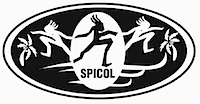Sadly, education at a university level seems follow the stereotype of sitting around a largish auditorium whilst some learned person at the front parades around a blackboard, or projector screen gesticulating wildly from time to time, whilst the students furiously copy down the displayed 'wisdom', to be absorbed and regurgitated at the appropriate 'final' examination and then promptly forgotten, never to be used again. This seemed especially inappropriate at the University of the South Pacific (to some lecturers) where a disproportionate number of students become senior figures and leaders in their countires (USP is a regional university which serves 12 independent nations).
Multi-Disciplinary
SPICOL was conceived as a multi-disciplinary exercise. SPICOL participants have to use their knowledge holistically. "Leaders" were required to work diplomatically and yet recognise the needs of their nation alongside with (opposed to?) those of the Region. Lobby and pressure groups had to be effective in their persuasion to make sure that the interests of their respective group were not ignored.
Authentic Learning
SPICOL engaged students in experiences that they seldom had in a normal classroom and yet were as true to the 'real world' that they were likely to experience. SPICOL grew intially to give experiences of what it felt like to take on a leadership role. However, it rapidly grew into students taking on various other roles such as those of being technical presenter giving position papers to interested 'government officials'; others took on the role of planning and organising a major conference; others took on the roles of interest or lobbying pressure groups such as women’s interests groups, environmental organizations, churches, labor unions, chambers of commerce, and so forth in an attempt to affect the leaders ultimate decisions.
USP Journalism
USP journalism students attend the conference and prepare print (a daily "SPICOL Update" newspaper), radio, and video coverage of the activities as part of their coursework. Students in courses relevant to the topic may do research and present their findings to the leaders during the conference; their presentations and papers are then counted towards their course assessment.
Organisational Training
SPICOL is student planned and organized. While there are some faculty Advisors (currently Ward Mardfin, Robert Nicole, and Robin Taylor), full responsibility rests with the USP students who form the Co-ordinating/ Planning/Organizing/Steering Committee. These students have the administrative and logistical work that they do for SPICOL count towards their coursework.
Leadership Training
The simulation intended to build leadership skills and attitudes among all of the participants; that was, “to promote human development” in the words of USP’s then Vice-Chancellor, Mr. Esekia Solofa, who opened the first SPICOL in 1996. He also explained in his speech that:
"Leaders” have the freedom to gather and consider relevant information, to discuss and negotiate issues in the interests of their own country and the region as a whole, and to come to a consensus decision on the issue.
USP students became the leaders of their asigned country at the conference. .
Authentic Assessment
In SPICOL excercises, many course coordiantors had managed to allow students to paticipate in SPICOL by imaginatively allowing the students SPICOL contribution to count towards their course assessment, such as:
- Allowing a technical presentation paper to count as an essay assignment
- Verbal persentation were marked towards a course assessment
- Poster presentations were also been assessed and counted towards their course evaluation
- Students who were on the steering committee/secretariat, had their contribution counted towards a number of different disciplines including history/politics, management, and psychology.

